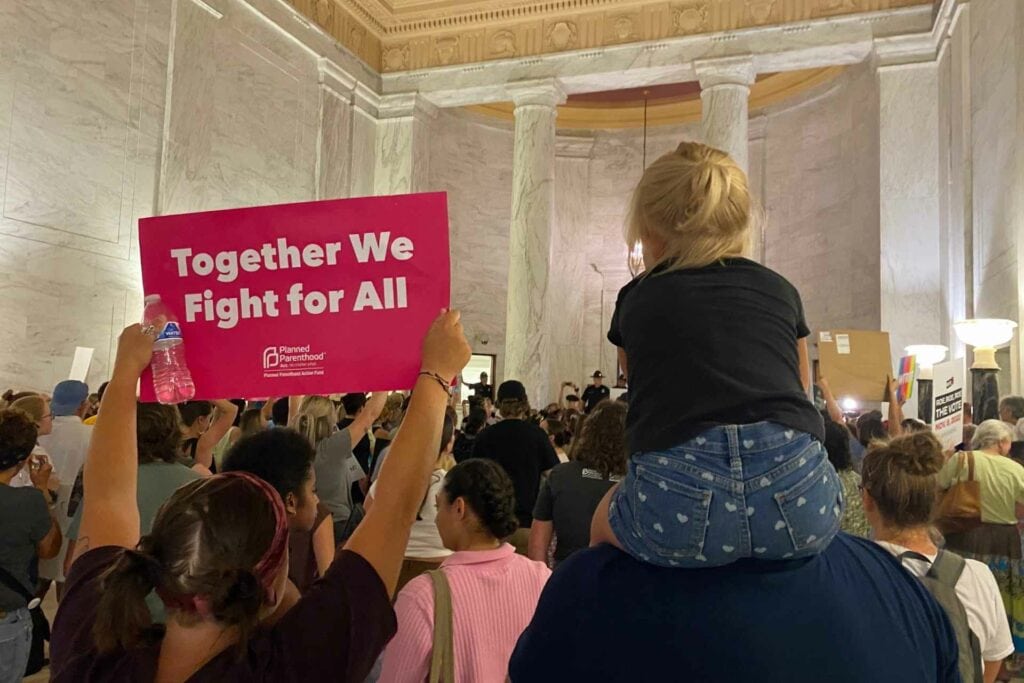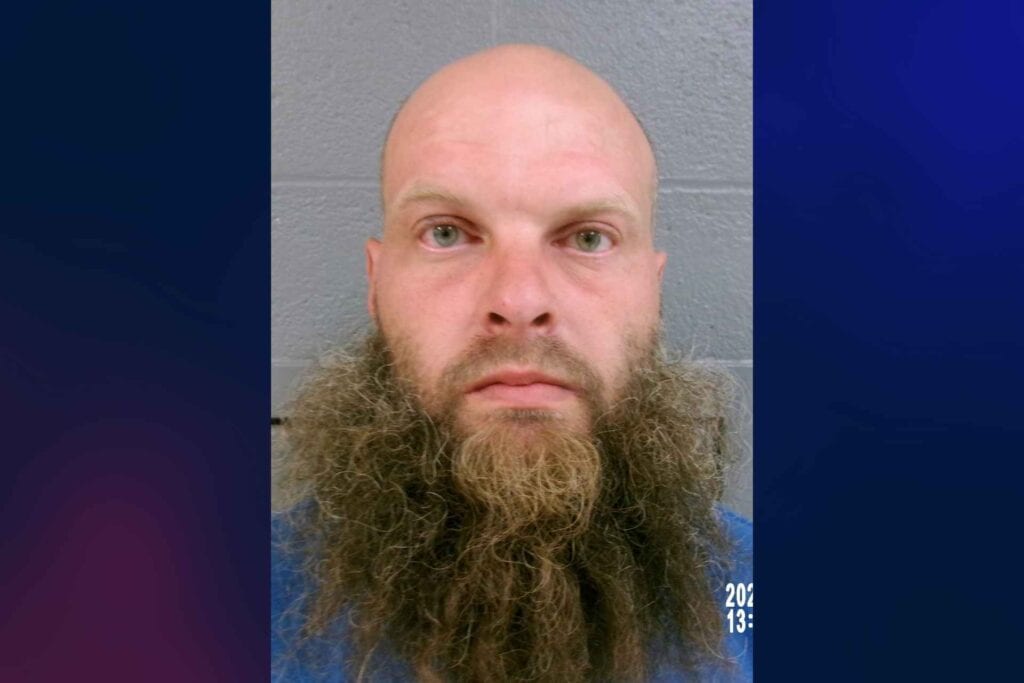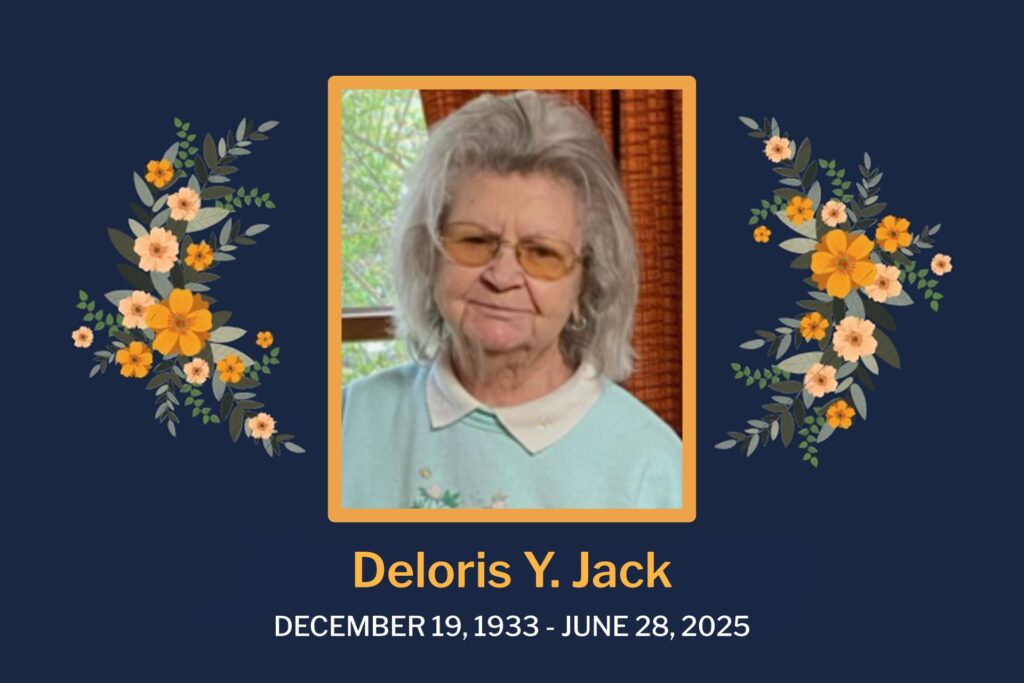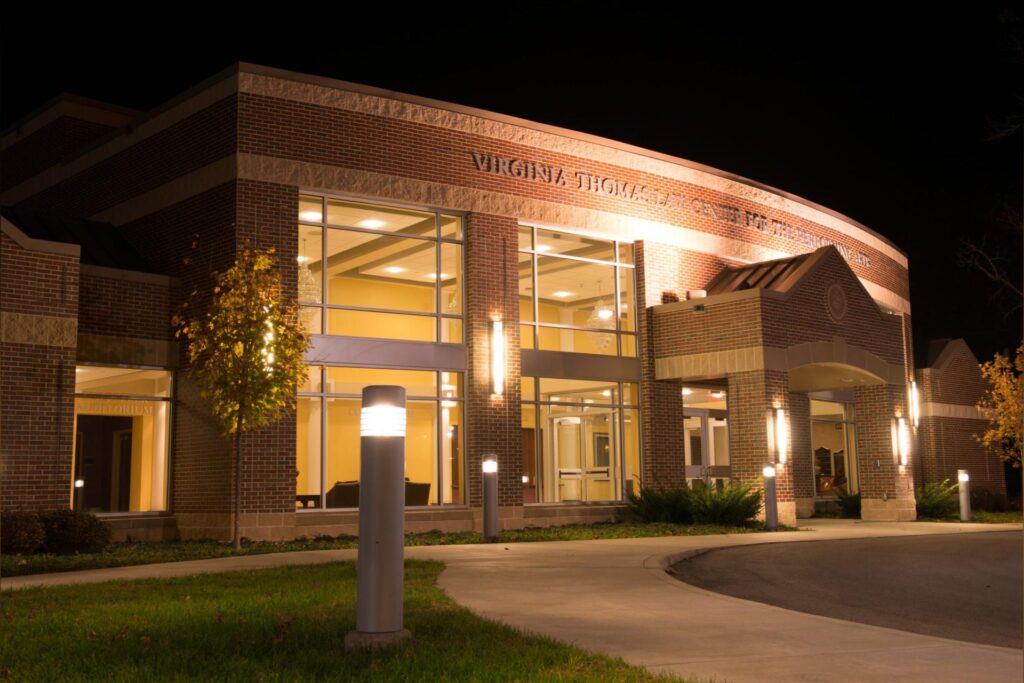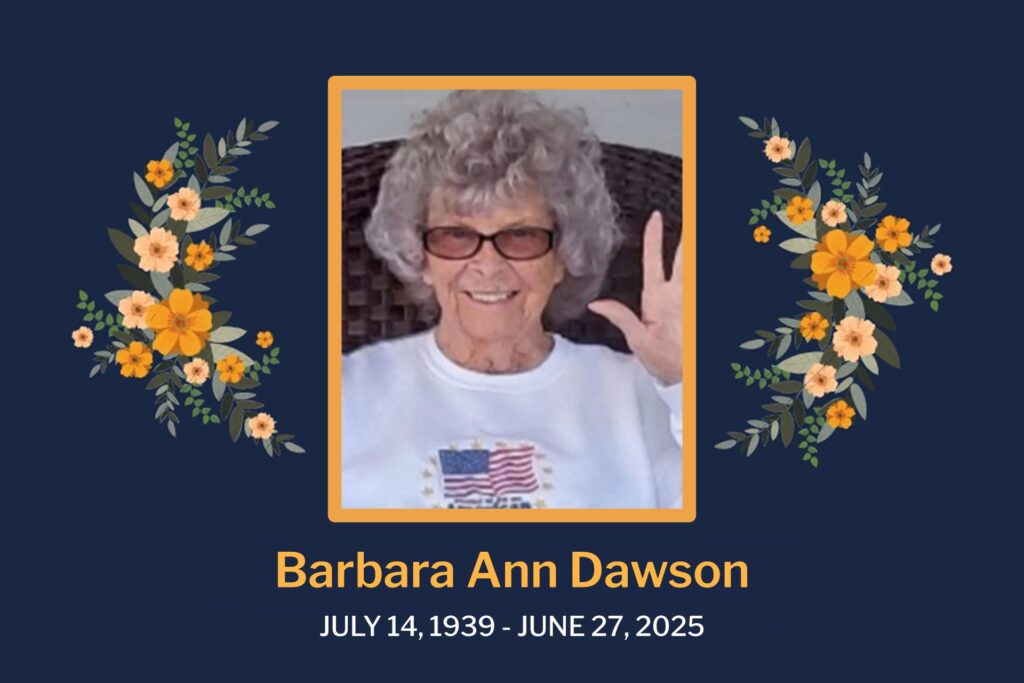
Editor’s note: This story was originally published by Mountain State Spotlight. Get stories like this delivered to your email inbox once a week; sign up for the free newsletter at https://mountainstatespotlight.org/newsletter
By Ian Karbal, Mountain State Spotlight
The din of protests crescendoed in the Senate chamber as the votes were counted on the screens at the front of the room.
“I can’t hear,” Senate President Craig Blair, R-Berkeley, repeated from his dais. The body had just passed a bill that would ban nearly all abortions in West Virginia.
The remaining pro-abortion rights protesters had packed themselves into the hallway beside the chamber in their 10th straight hour of demonstrations that day.
“No justice! No peace!”
Blair was having trouble hearing anyone who wasn’t speaking into a microphone, and a small group of counselors and senators gathered beside him.
“Keep the door closed for me, please,” Blair directed the doorkeepers who stood uneasily by the hallway entrance. The Senate president then turned off his microphone, and yelled instructions to the doorkeepers and senators in attendance: The front and side doors of the chamber were not to be opened for anyone. It was hard enough to hear already.
That didn’t stop Delegate Danielle Walker, D-Monongalia, perhaps the most staunchly pro-abortion rights legislator, and the only one to have openly undergone the procedure. She argued her way past the doorkeeper and through the side door. As it opened for her, the chants outside swelled to drown out nearly all other sounds in the chamber.
“My body! My choice!”
It was one of the final scenes of a chaotic five-day session that was supposed to last only two. That night, West Virginia lawmakers — despite a Republican supermajority that had both the votes and the appetite to ban abortion outright — left Charleston without passing a single bill. Republicans in both chambers agreed that a ban should be implemented, but lawmakers couldn’t agree on the shape it should take. The result was a session that often left members of the public in the dark until moments before lawmakers made decisions about their bodily autonomy.
The rift was between Republicans who wanted a ban with few exceptions and felony charges for doctors who violated it, and those who wanted exceptions for victims of rape and incest, and to drop the criminal penalties altogether.
The debate has been playing out all over the country in the wake of the overturning of Roe v. Wade; just this week, the first post-Roe vote on abortion in the country saw Kansans overwhelmingly reject an attempt to remove constitutional protections for the procedure. In West Virginia, polling has suggested that while a majority of voters oppose abortion personally, more than 60% oppose legislative efforts to ban the procedure. The poll, commissioned by the pro-abortion rights group WV Free, was conducted by a Democratic-affiliated group before Roe v. Wade was overturned.
Now, it’s unclear when legislators will return to debate the issue, if they do at all.
A frantic start
On Monday, July 25, when lawmakers convened, it was for a special session, called by Gov. Jim Justice to consider his plan to slash income taxes. Sen. Amy Grady, R-Mason, was prepared to spend the time defending an alternate plan being pushed by Senate Republicans. That morning, after the first full floor meeting of the Senate adjourned, she sat at her desk in the back row of the near-empty chamber looking at her phone.
Grady’s eyebrows rose as she read a press release from Justice’s office: Along with his income tax cut proposal, Justice now wanted lawmakers to “clarify and modernize the abortion-related laws” in West Virginia. The move took her by surprise.
“I don’t think we’re ready,” Grady said. “There’s no consensus in the caucus.”
The statement would prove to be prescient.
It had only been a month since the U.S. Supreme Court issued its ruling overturning Roe v. Wade, paving the way for states to outlaw abortion. And in the weeks leading up to his announcement, Justice publicly urged caution in changing West Virginia’s abortion laws, saying that such a move should not be made hastily, and that he wouldn’t call a special session on the issue until lawmakers were absolutely ready.
“We’ve got to have some more time and get a whole lot more clarity on that,” Justice said in a press conference just three days earlier.
Across the state, West Virginians learned that the fate of abortion rights could be decided imminently.
Within an hour and a half, it was standing-room only in the House Health and Human Resources Committee meeting, monitored by four members of the Capitol Police. There, committee Republicans unveiled and advanced an abortion ban with no exceptions, save for medical emergencies and medically nonviable pregnancies.
By 9 a.m. Wednesday, pro-abortion rights organizers had prepared their opening salvo. More than 100 West Virginians showed up at the Capitol, many intending to share their stories. Each had only 45 seconds to speak — less than the time typically allocated at such hearings. They overwhelmingly opposed banning abortion, while many of the lawmakers in attendance sighed and looked at their phones throughout.
By the afternoon, the House had passed a bill that largely ignored the demands of the protesters continuing to chant throughout the Capitol.
“What’s ringing in my ears is not the noise of the people here, it’s the cries of the unborn,” Delegate Brandon Steele, R-Raleigh, said. “I have read the stories this week of young men and women who have grown to have loving mothers in their lives, and be very productive in society, who were born of rape … those lives have value.”
He was urging rejection of a Republican-proposed amendment that would allow victims of rape and incest to obtain abortions up to 14 weeks of pregnancy, provided that they first report the incident to law enforcement. Ultimately, the amendment was narrowly approved, and the House passed its bill banning nearly all abortions.
A paper tiger and a theoretical lion
Such was the state of the abortion ban bill on Friday, as the Senate prepared to debate it. But then, the process broke down.
First, the entire bill was replaced with a different version: An amendment offered by Sen. Donna Boley, R-Pleasants, effectively crossed out the existing bill and replaced it with one that limited the time that most adult victims of rape and incest would be allowed to legally obtain abortions to only eight weeks, down from the 14 weeks the House had agreed upon.
The common but non-transparent maneuver meant the public would be unable to read the text of what lawmakers were voting on until shortly before it was introduced.
In a second day of organized demonstrations, more than 100 protesters led chants in the echoey marble hallways outside the Senate chamber.
When they moved to the Senate galleries to watch the debate unfold, they were soon ejected by Blair when their jeers interrupted the floor session. Many responded loudly when Sen. Robert Karnes, R-Randolph, suggested that child victims of sexual assault “romanticized” their abusers, and thought of them as “boyfriends.” The gallery doors were locked and the protesters returned to the hallway outside the chamber.
“In my 21 1/2 years in the legislature I’ve never seen leadership remove everyone from the gallery and lock the doors,” tweeted Sen. Bob Beach, D-Monongalia.
Eight hours after the Senate was called into session, senators passed their version of an abortion bill. But this one had two key changes:
One, introduced by Sens. Tom Takubo, R-Kanawha, and Michael Maroney, R-Marshall, both physicians themselves, removed criminal penalties for doctors who performed abortions. The amendment, they said, would prevent physicians from leaving the state, or never coming in at all.
The other was introduced by Minority Leader Stephen Baldwin, D-Greenbrier. It broadened the circle of qualified people that minors who are victims of rape and incest could report the crime to: rather than just law enforcement, a minor could still qualify for an abortion under the ban if they reported to people like teachers and guidance counselors.
But these changes met with opposition from some Republicans.
Sen. Eric Tarr, R-Putnam, said on the floor that he personally opposed the amendments extending exceptions to the abortion ban and removing criminal penalties for doctors. In his final remarks of the session, Tarr spoke directly to his colleagues in the House and implored them to strip those from the bill.
The bill was a “paper tiger,” he said. “I’m asking, please send us back a lion.”
Nevertheless, Tarr voted with most other Republicans in favor of the final bill, which passed 21-10. Though still a ban, in some ways it was more lenient than the version that passed the House.
Across the Capitol, House Republicans caucused privately. They could either accept the Senate’s version of the bill or reject the changes.
They chose the latter.
The dozens of remaining protesters, some who’d been there for more than 12 hours, cheered a small victory. For now, abortion will remain legal in West Virginia.
The protesters huddled around Delegate Walker, who led them in a chant.
“We will be back! We will be back!”
What happens next
But when they’ll be back is still an open question. It’s been several days since the House and Senate adjourned, with no indication of when they’ll return.
The next step in a legislative impasse is what’s known as a “conference committee,” when House and Senate leaders will appoint five members of each chamber to hash out a deal that they believe a majority of legislators can agree on.
A spokesperson for Blair said that the conference committee meeting will be open to the public and, because of the intense public interest, likely available to watch remotely.
And, with a supermajority in both chambers, it’ll be largely up to Republicans to reconcile their differences. Party members in both chambers have the will, and the votes, to pass some sort of ban, but it’s unclear whether it will look more like the House’s version, with criminal penalties for doctors and strict reporting requirements for victims of incest and rape hoping to claim an exception to the ban — or if it will look more like the Senate’s version, with no criminal penalties for doctors performing abortions and an easier reporting process for people seeking exceptions.
It’s also possible the conference committee will agree on a version of the bill that looks entirely different from what has passed so far.
In the meantime, the Women’s Health Center of West Virginia will continue to provide abortions in their Charleston clinic for as long as the procedure remains legal. That could be until lawmakers reconvene and agree on abortion restrictions, or it could come down to a case before the state Supreme Court of Appeals on whether the 19th-century abortion ban on the state’s books can be enforced.
The lawsuit was mounted by the Women’s Health Center of West Virginia and the ACLU after Roe v. Wade was overturned. Attorney General Patrick Morrisey is defending the ancient law that he argues can still be used to bring felony charges against anyone who provides abortions in West Virginia, and “arguably” the patients themselves, according to a memorandum released by his office. A Kanawha County circuit judge blocked enforcement of the law, and Morrisey has appealed the case to the state Supreme Court.
Reach reporter Ian Karbal at iankarbal@mountainstatespotlight.org.
